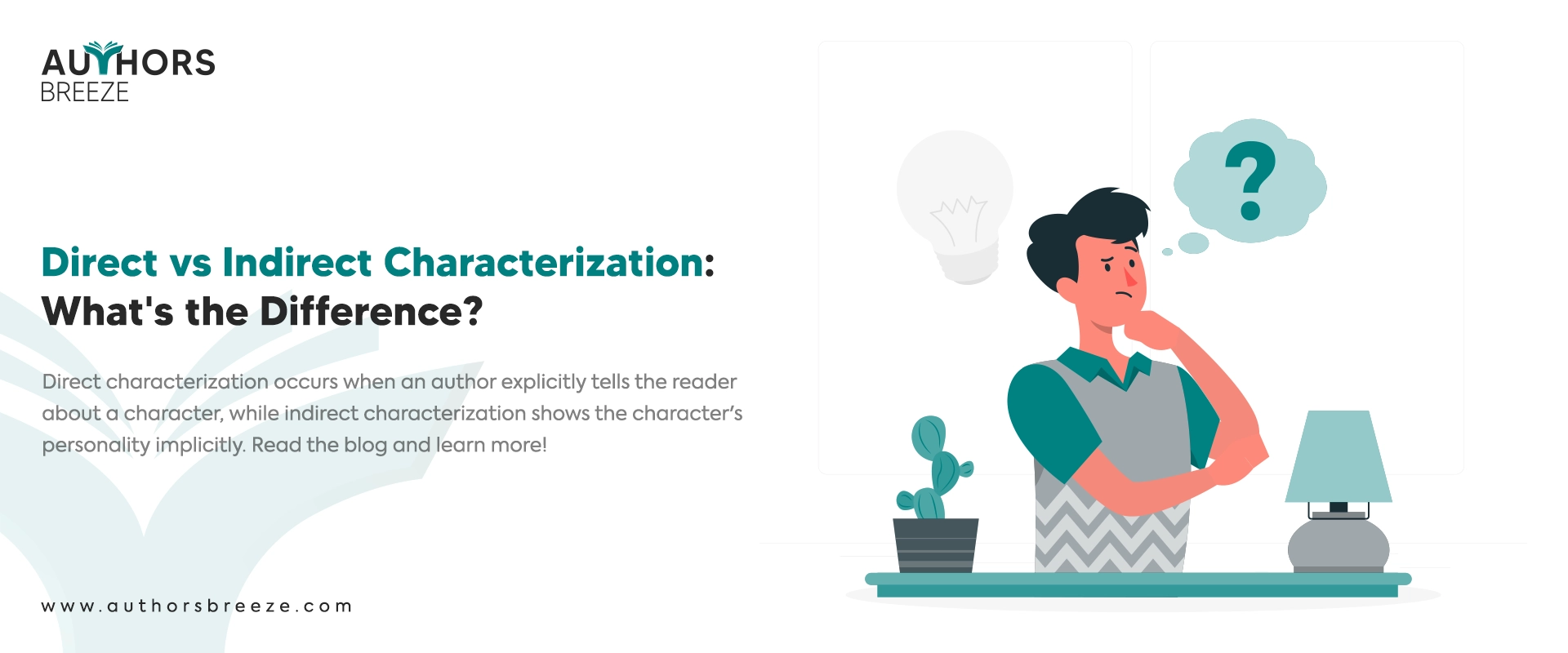Don’t Have Time To Read? Listen To Writing under a Pen Name Instead!
Key Takeaways: Writing Under a Pen Name
- A pen name, or pseudonym, is a fictitious name that is used by authors when publishing.
- Pseudonyms can help you write books in multiple genres without confusing the readers.
- Always choose a name that is easier to remember or more appealing to the audience.
- Stay consistent with the selected pseudonym across all platforms.
- Make sure the pen name is legal and not trademarked.
Use A Pen Name with Confidence
We allow you to take full credit under the pseudonym of your choice. Embrace the freedom of storytelling without limitations. Your secret is safe with us.
Introduction
We all can understand that something is intriguing about picking a unique and catchy name for yourself! We all have done it. At least once in a life.
Similarly, some authors use pen names to hide their true identity. Yes! Authors pick pen names for this reason as well. After all, who would like to be embarrassed if people don’t like their book? I guess no one!
But these are not all reasons to use pen names. An author must know various other reasons and many more things when writing under a pen name.
Thus, continue reading this blog post to solve the mystery of what authors might need to know when writing under a pen name.
What Is A Pen Name?
Before moving forward, first, understand what a pen name is.
“A pen name, or a pseudonym, is a short and made-up name. Authors use this name instead of their real name when they publish their work.”
For example:
“Samuel Clemens brilliantly wrote under the pen name Mark Twain.”
Now you understand what a pen name is.
So, let’s move further and look at a clearer picture of pen names.
Why Do Writers Use a Pen Name?
There are many reasons why an author writes under pen names, and every reason has its significance.
Some of the reasons are:
To Maintain Privacy
Most writers use pseudonyms to keep their personal and professional lives separate. This is especially important for those who write about sensitive or controversial topics such as LGBTQ or mental health. The reason is to avoid negative comments and not to get personally associated with the content.
To Write In Different Genres
Most authors also pick pen names to achieve flexibility in writing different genres. This helps them to explore various creative outlets without confusing their readers.
For example:
“An author of a romance novel may choose to use a different pen name to write a horror novel to avoid confusing readers.”
To Sound Attractive
Authors often choose pen names that are easy to pronounce when their real names might be long and difficult to remember. A pseudonym that sounds better and is easy to say can make an author more appealing to their audience.
To Avoid Partiality
Many authors use pen names to avoid partiality. They use them to avoid judgments based on their real name, like gender or background.
For example:
An author might choose a gender-neutral name to avoid assumptions about:
- Their writing abilities.
- Themes of their work.
This is common in genres where gender stereotypes continue, such as:
- When women write historical fiction and men write romance.
To Build A Brand
Authors often use pen names to create an identity that matches the tone or style of their writing.
For instance:
“Author of dark thrillers or mysteries might choose a mysterious name to reflect the themes of their stories.”
Similarly:
“Authors of lighthearted romance might opt for a warm, inviting name to connect with their audience.”
To Share Name For Teamwork
When two or more authors work together on a book, they might use a single pen name instead of using multiple names. This approach can make their work feel united. It also helps to avoid confusion for readers.
Famous Authors Who Used Pen Names
Want to get a better understanding of why writers choose to write under pen names? Here are some famous examples for you:
- Mark Twain (Samuel Langhorne Clemens)
Reason: To reflect his riverboat piloting days, as “Mark Twain” means “Two Fathoms Deep.”
- George Orwell (Eric Arthur Blair)
Reason: To protect his family from the political consequences of his critical writings.
- K. Rowling (Joanne Rowling)
Reason: To appeal to both males and females, as her publisher believed boys might not read a book written by a woman.
- Lewis Carroll (Charles Lutwidge Dodgson)
Reason: To separate his whimsical literary work from his academic career in mathematics.
- Seuss (Theodor Seuss Geisel)
Reason: After being banned from his college magazine, he used “Seuss” to continue publishing under a playful persona.
How to Create a Pseudonym?
Still here? Cool! So, now let us tell you another important thing an author must know:
How to craft a pen name?
Yes! You read it right. There is certainly a way to make a good and catchy pseudonym.
There are some rules or you can say techniques that you can use to create a pseudonym. So, here’s a quick guide to help you make one:
- Try to select a two-syllable first name. It should be gender-neutral. This is necessary for,
- Privacy concerns.
- To avoid biases.
- Now, pair it with a single-syllable last name, preferably one that places you near famous authors on a bookstore shelf.
- Alternatively, use initials (e.g., J.K. Rowling). Initials are great for keeping gender vague.
This combination makes your name easy to spell and also appealing to a broad audience. However, there are no strict rules on creating a pseudonym. So get creative and pick something that suits you the best!
Moreover, if you find it difficult to decide on a pseudonym for yourself, you can just figure it out using a pen name creator. The following are some reliable pen name generators you can use to create a pseudonym for yourself:
- Pen Name Generator by Reedsy.
- Pen Name Generator by ShinyWords.
- AI Pen Name Generator by BookRaid.
Rules of Using a Pen Name
There are some general rules and guidelines for using a pseudonym. However, authors must consider following these rules:
Keep It Legal
Authors must consider the legal implications of pen names. So, you must choose pseudonyms that have not already been taken or trademarked. It could lead to legal disputes. In addition, you should decide whether you want to copyright your pen name and want to protect it legally.
Also Read: “How to Copyright a Book (Research Based In-Depth Guide)”
Make It Unique
Authors should consider the creative aspects of choosing a pen name. So, you must choose one that is not too similar to an existing author or public figure. That is why your pseudonym should be unique enough to avoid confusion or being mistaken for someone else. It also helps establish your own identity and brand.
Must Reflect Your Genre And Style
You must choose a pen name that aligns with the tone and genre of your writing. It helps readers associate your name with the type of stories you create and also helps to set the right expectations and make a connection with your audience. Furthermore, it gives readers a sense of your brand and the emotional tone of your work.
Keep It Consistent
The most crucial rule when choosing a pen name is consistency. So, what does that mean? It means that when you’ve selected a pseudonym, you must stick to it. It becomes your identity as an author. Thus, it’s essential to use it consistently across all platforms and activities. It may include:
- Your books
- Social media profiles
- Website
- Book marketing campaigns, etc.
Consistency helps establish your pen name as a recognizable and trustworthy brand, making it easier for readers to find you and follow your work.
How to Use a Pen Name in Publishing?
Once an author has selected a pseudonym, they need to consider how to use it when they publish a book. Using a pseudonym in publishing can be an effective strategy for authors. Writers can use their pen name to promote a book and increase their readership by considering the following:
Marketing and Promotion
You should think about how to market your book using a pen name. You must make sure that your pseudonym is consistent across all platforms, such as social media, websites, and book covers. Authors might also need to use their real name with their pseudonyms, particularly when building their author website.
Sometimes, you might also pair your real name with your pseudonym to build credibility, especially when networking or promoting your work at events.
For example:
“An author named Jane Doe, writing as “Lila Rose,” could use “Lila Rose (Jane Doe)” in professional bios or interviews to link both identities effectively.”
Your Pen Name, Your Author Brand
Partner with our tailored book marketers to ensure your pseudonym makes a lasting impression in the literary world.
Disclosure and Transparency
Authors must be transparent about using a pen name. They should make sure to include a statement in their author bio or on their author website explaining:
- Why do they use a pseudonym?
- How can readers contact them?
Connection with The Publisher
Authors should build a good connection with the book publishers when using a pseudonym. They should clearly communicate their reasons for using a pseudonym and make sure their publisher understands how they want to be credited.
Pros and Cons of Using a Pen Name
Pen names are important in an author’s life. They provide many benefits to writers, but there are also some negatives to writing under a pen name. So, let’s take a closer look at some of the pros and cons that a writer must know when using a pseudonym.
| PROS | CONS |
| Keep your real name and personal life separate from your writing career. | You might not get personal credit for your work. |
| It lets you write in different genres without confusing your readers. | You’ll need to build your new name as a brand, which can take time. |
| You can choose a pen name that’s easier to remember and fits your genre or audience. | Some publishers or contracts may still require your real name. |
| It helps you avoid judgments based on gender, culture, or background. | Payments still need to be made to your real name, which can get tricky. |
| Let multiple authors use one name to make the book feel more unified. | Readers could feel disconnected if they find out the name isn’t real. |
Also Read: “How Long Does It Take to Write a Book?”
Conclusion
Writing under a pen name provides great flexibility and privacy to the authors. Besides that, it also helps to explore different genres and to build a brand. An attractive and easy-to-remember pseudonym can help you reach a wide range of audience. But it’s important to understand the rules and potential challenges that come with using a pseudonym.
At Authors Breeze, we understand the importance of pseudonyms and their need for authors. Therefore, our expert services are designed to support you at every stage of your writing journey, whether you work using your real name or a pseudonym.
Frequently Asked Questions
Is a pen name legal?
Yes, a pen name is legal. It is commonly used for writing, publishing, and branding, as long as it's not used for fraudulent purposes or to commit illegal activities.
Is it worth having a pen name?
Yes, a pseudonym can be worthy if you want it for privacy, branding, or for writing in different genres.
How do I know if a pen name is taken?
You can check if a pseudonym is taken by doing the following things:
- Search online.
- Checking social media platforms.
- Look through publishing databases or trademark registries.
Can I Switch Between Pen Names for Different Genres or Series?
Yes, you can switch between pseudonyms to write in different genres or series since it is a common practice for authors to separate their target audience.
Start Your Journey With A Pen Name
At Authors Breeze, we specialize in helping authors like you craft unique identities that both resonate with readers and set your work apart.







